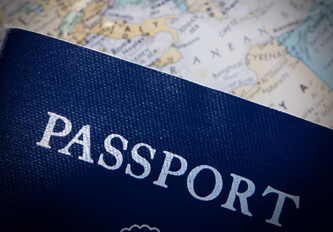To see how the combined expertise of our consultants and partners could work for you, contact us to arrange a free private consultation.

A COMPARISON BETWEEN THE MALTA AND CYPRUS CITIZENSHIP PROGRAMMES
The Malta Individual Investor Programme and the Cypriot Citizenship Programme are amongst the highest ranked citizenship by investment programmes globally. In this article we will be looking at some of the main aspects of both programmes to help you decide which could be the better option for you:
The Maltese Individual Investor Programme
Qualifications:
- Applicants must be 18 years of age or older;
- Applicants must have been in possession of a residence card for 12 months.
- Applicants must rent a property for a period of 5 years at a minimum annual rent of €16,000 or purchase property in Malta at a minimum value of €350,000. This property must be held onto for a minimum period of 5 years;
- Applicants must make a contribution to the National Development and Social Fund of €650,000 for an adult, €25,000 for spouse or minor child and €50,000 for each dependant aged between 18-26 (and dependants over the age of 55);
- Applicants must invest a minimum of €150,000 in government approved financial instruments and hold the same for at least 5 years.
- Applicants must have global health insurance coverage of a minimum of €50,000.
The Cypriot Citizenship Programme
Qualifications:
- Applicants must be of 18 years of age or older.
- Applicants must buy real estate in Cyprus, the value of which must be at least €500,000. This real estate must be declared as the applicant’s main residence.
- Applicants must invest in the Cyprus economy through at least ONE of the following modes:
- An investment in Cypriot bonds valued at €2 million; OR
- An investment of at least €2 million in the financial assets of Cypriot companies or organisations; OR
- An investment of at least €2 million in real estate, land development or infrastructure projects; OR
- An investment of at least €2 million in businesses or companies that are based and operating in Cyprus and employ at least 5 Cypriot citizens; OR
- A combination of the aforementioned investments.
As with every scheme, there are disadvantages and advantages to both options and in this case in particular, whether or not something is an advantage or a disadvantage is solely based on the personal circumstances and preferences of each individual and their specific requirements.
Comparison
When it comes to the purchasing of real estate, while Cyprus requires citizenship hopefuls to buy main residences which are priced at a minimum value of €500,000, Malta’s investment programme allows applicants to either buy a home at the minimum value of €350,000 or alternatively show proof of a 5 year rental contract. In the latter case, the tenant is bound to pay at least €16,000 per annum in rental fees.
Interestingly, while Cyprus requires the individual to hold on to his or her purchased property indefinitely, in Malta the applicant’s property can be sold after a 5-year period. As a further incentive, after the lapse of the obligatory 5-year period, property in Malta can be sold completely exempt from tax if such property is held for a period of 3 years as the resident’s sole and ordinary residence.
Although both programmes offer successful applicants the right to travel, reside and work freely in all of the EU member states, Malta has the added advantage of being a member of the Schengen area which makes travelling within Europe’s borders easier. This alone is an added bonus for all those individuals who wish to use the citizenship for business purposes.
With respect to taxation, Malta and Cyprus are extremely similar as taxation in both countries depends on domicile and residence and not citizenship. If a non-domiciliary individual obtains citizenship in either jurisdiction, this would not in itself cause the beneficiary to acquire a new domicile of choice there.
According to a list compiled by CNN, Malta and Cyprus are respectively ranked 9th and 17th in terms of countries with the best passports, with the former having visa-free travel arrangements to 169 countries and the latter to 159 counties.
When it comes to application processing time, the Cyprus programme is significantly faster than the Maltese, with applications being processed within a period of 3 months as opposed to the 12 months, which is the case for the latter programme.
